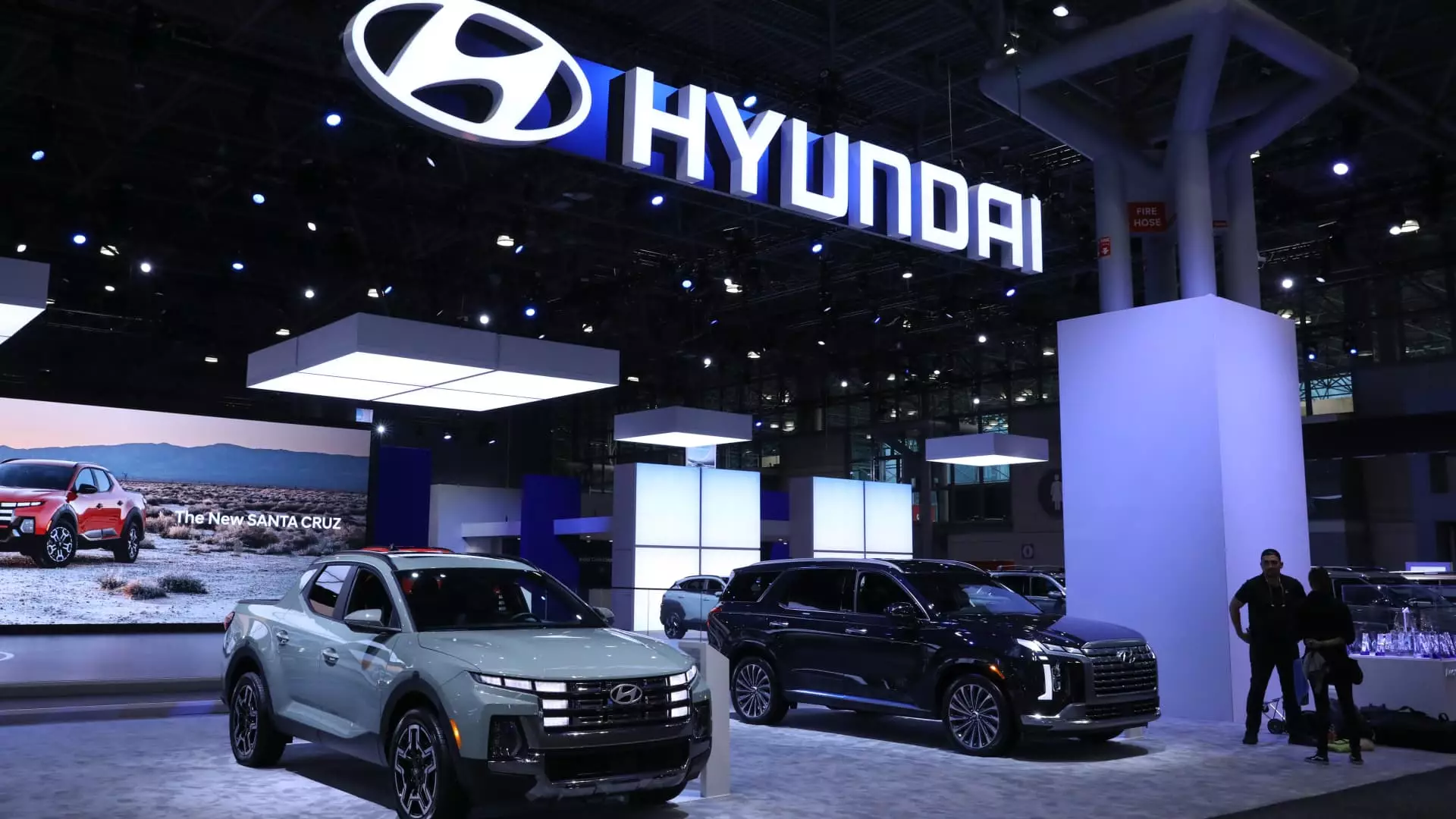In a monumental shift for U.S. manufacturing, South Korean giant Hyundai has unveiled plans for a staggering $20 billion investment in American soil. This endeavor notably highlights the construction of a $5 billion steel plant in Louisiana set to create approximately 1,500 jobs. This deliberate move not only serves to strengthen Hyundai’s production capabilities but also provides an insightful illustration of how foreign investments can reshape the landscape of domestic industry. Such a bold step is particularly striking in the context of ongoing global trade tensions, and the potential fallout from tariffs.
Navigating Tariffs and Trade Wars: A Modern Dilemma
As President Trump’s April 2 tariff deadline looms, major corporations like Hyundai find themselves in a tight spot, attempting to dodge the looming storm of tariffs and trade wars. The urgency to appease tariffs by enhancing localization has never been more pressing. Hyundai’s CEO, José Muñoz, highlighted that increasing local production is the company’s key strategy for navigating these tumultuous waters. This shift towards onshoring isn’t just a corporate strategy; it represents a significant pivot in how businesses plan to operate in an increasingly protectionist environment. In doing so, Hyundai is setting an example that could pave the way for other international players fraught with similar dilemmas.
Competing Against Goliaths: The Electric Vehicle Race
In recent years, Hyundai has emerged as a prominent player in the electric vehicle market, presenting a formidable challenge to established titans like Tesla. The investment plan not only reinforces Hyundai’s commitment to sustainability but also emphasizes this strategic rivalry as they eye increased market share. By localizing steel production, which is critical for constructing electric vehicles, Hyundai demonstrates a clear understanding of the supply chain intricacies involved in this fast-paced sector. The significance of this cannot be overstated; local production means reduced dependency on foreign steel and a more nimble response to market demands.
Manufacturing Jobs and Economic Growth: A Precious Opportunity
A project of this magnitude inevitably triggers discussions about job creation and economic growth. The prospect of 1,500 direct jobs is exhilarating, but it’s crucial to view this investment through a broader lens. These jobs represent not just employment opportunities but effects on local economies through increased spending and ancillary job creation. With a robust workforce ready to engage in advanced manufacturing, regions like Louisiana stand to gain from an economic renaissance underpinned by this investment.
The Implications of Trade Agreements: A Complex Landscape
Hyundai’s move comes at a critical moment in U.S.-South Korea relations, particularly concerning ongoing debates regarding trade deficits and tariffs. The South Korean government’s assertion that its effective tariff rate on U.S. imports is low contrasts sharply with Trump’s claims of unfair trade practices. This moment reveals an essential tension: how businesses navigate the narrative of trade while protecting their interests in a global economy. Hyundai’s investment signals a keen awareness of the changing dynamics and a willingness to adapt to what might seem like a highly charged political environment.
Hyundai’s investment is a powerful statement in favor of reshaping onshore production. It exemplifies the future of industry in a time of intense globalization debates and serves as both a warning and inspiration for international conglomerates grappling with similar situations.

